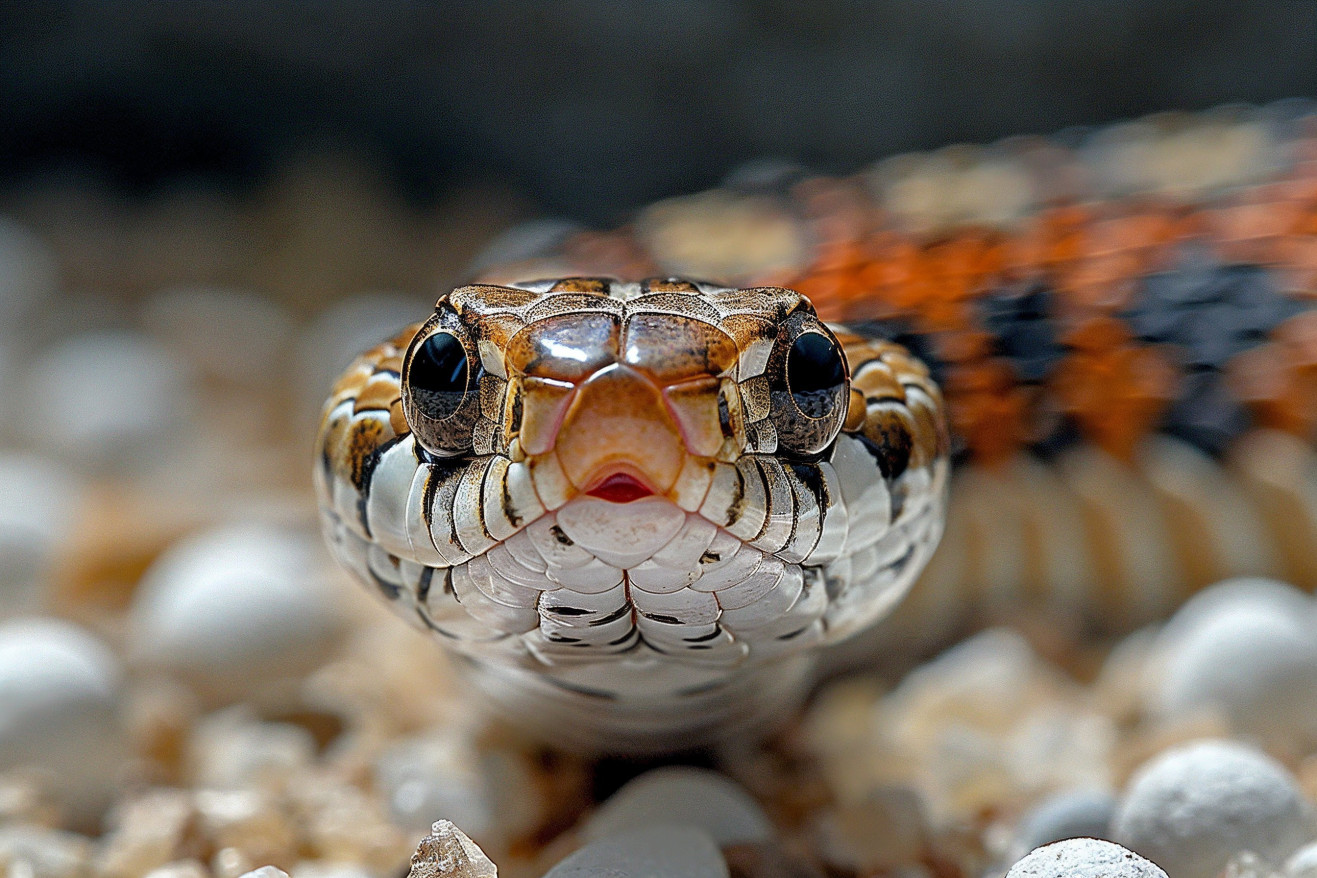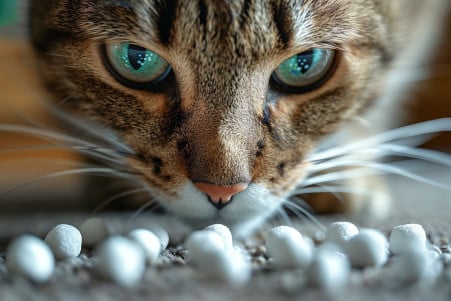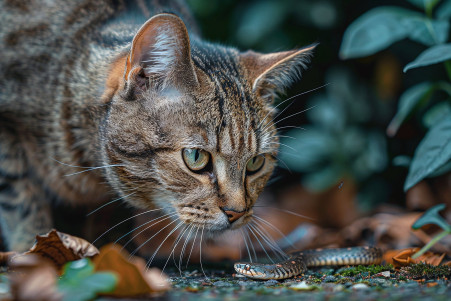Can You Use Mothballs to Get Rid of Snakes? Here's What the Research Says
22 March 2024 • Updated 21 March 2024

Mothballs are a popular household product that some people use to repel snakes, but the efficacy and safety of this method is controversial. Mothballs contain naphthalene or paradichlorobenzene, which are toxic to snakes and other animals if they are eaten, but the fumes that are released into the environment are not likely to be strong enough to consistently deter snakes. There are other snake repellents that are both safer and more effective.
In addition to the importance of researching natural and chemical repellents to prevent snake encounters, it's also important to understand the science behind this claim. In the following section, we will review the work of herpetologists, ecologists, and pest control professionals who have researched snake biology and behavior. Their research helps to clarify whether mothballs and other popular repellents work and offers insight into the best ways to control snakes safely and humanely.
Can you use mothballs to get rid of snakes?
What Studies Say About Snake Behavior and Repellents
The science of snake behavior and repellents offers some important clues about why mothballs and many other popular repellents don’t work. Snakes use their sense of smell and chemical receptors to find their way in the world, locate food, and stay safe. However, as herpetologist Terry Vandeventer told AP News, snakes don’t recognize naphthalene, the active ingredient in mothballs, as a deterrent. In experiments, snakes slithered right over mothballs to get to their prey, showing no sign that they were bothered by the smell.
Although some people claim that snake repellents made from plant oils like cinnamon or clove work because they have strong odors, studies cited by DIY Natural show that snakes are actually attracted to these scents because they think they’re potential food. Similarly, research has shown that products containing sulfur don’t work because snakes aren’t naturally repelled by the sulfuric compounds they encounter in the wild.
In addition, using chemical repellents doesn’t solve the problem of why snakes are attracted to a particular area in the first place, whether it’s because there’s a lot of food, good places to hide, or few predators. As Clemson University pesticide regulators point out, mothballs and similar products are regulated pesticides that are only supposed to be used in the ways described on their labels, not to keep wildlife away in general. To control snakes effectively, you need a more holistic approach that includes changes to the environment and the factors that are attracting them.
Other Safe and Effective Snake Repellents
Although moth balls may be a tempting option for keeping snakes at bay, professionals say there are other natural and less toxic ways to deter snakes. DIY Natural explains that planting certain herbs and flowers in the garden can help keep snakes away. Lemongrass, wormwood, and marigolds are just a few of the natural snake repellents that can be planted in the garden.
In addition, essential oils like cinnamon, clove, and cedarwood have been proven to repel snakes because their strong scents disorient the snakes. The Rustic Elk suggests making a spray with these oils and spraying it around the home's entryways. In addition, leaving bowls of ammonia out and using predator urine, such as fox urine, can help keep snakes away from the property.
In addition to chemical and plant-based repellents, it's important to keep the yard well-maintained. Call Northwest explains that it's important to remove potential food sources, water sources, and hiding places that could attract snakes. Sealing cracks, crevices, and other openings can help keep snakes from getting into the home and other structures. By taking a well-rounded and humane approach, homeowners can effectively discourage snakes from coming onto their property.
Health and Environmental Dangers of Moth Balls
Moth balls are made with toxic chemicals like naphthalene and paradichlorobenzene that can be dangerous if they are inhaled or ingested. The National Pesticide Information Center explains that both of these chemicals are solid substances that slowly turn into gas at room temperature, which means the toxic gas is released into the environment.
If moth balls are used improperly, like if they are placed outside or in containers that aren't airtight, it can lead to exposure to these toxic chemicals. The University of Florida IFAS Extension explains that exposure to the fumes of moth balls can cause headaches, nausea, dizziness, and in severe cases, hemolytic anemia, which is a condition in which red blood cells are destroyed. Ingesting moth balls can be especially dangerous, especially for children.
In addition to these health dangers, studies have found that moth balls can also lead to soil, plant, water, and air pollution if they are used outside. The chemicals in moth balls can stay in the environment for a long time and cause damage to wildlife and the environment. Because of these significant health and environmental dangers, using moth balls to repel snakes is not only ineffective but also very risky.
Legal Regulations and Proper Disposal of Moth Balls
Moth balls are regulated pesticides and should only be used as directed on the label, which does not include using them as wildlife repellents. According to Critter Control, using moth balls for purposes like deterring snakes is illegal and can lead to fines or other legal consequences.
If you have unused moth balls, they should be considered hazardous household waste and taken to a designated facility for proper disposal. House Digest explains that moth balls contain toxic ingredients like naphthalene and paradichlorobenzene that can be harmful if they are inhaled or swallowed. It is important to store and dispose of them properly to avoid exposure and environmental hazards.
The National Pesticide Information Center also notes that if moth balls are used outside, the fumes can be toxic to humans, pets, and wildlife that may be exposed to or consume them. Homeowners should make sure to follow all safety precautions and use moth balls in airtight containers as instructed on the label.
The Best Way to Keep Snakes Away
The studies cited in Family Handyman make it clear that chemical repellents are not only ineffective but also potentially dangerous. The article suggests using snake repellents like Ortho Snake B Gon, which is made from essential oils and is marketed as an eco-friendly alternative.
However, the article also stresses the importance of dealing with the issues that are attracting snakes in the first place. This includes getting rid of food sources like mice and rodents, sealing up any gaps in the home, and keeping the yard free of debris and long grass. By doing this, homeowners can make it less likely that snakes will want to come onto their property, and they won’t have to rely on potentially dangerous chemical products.
The Poison Control and EPA articles also make it clear that using moth balls to deter snakes can be dangerous. Moth balls contain toxic chemicals like naphthalene and paradichlorobenzene that can be harmful if ingested or inhaled, especially for kids. In addition, using them outside can lead to environmental problems.
Wrapping Up: Evaluating Mothballs as Snake Repellents
The evidence is clear that moth balls are not an effective or safe way to keep snakes away from homes and properties. Not only are the chemicals in moth balls dangerous if ingested, but the fumes they release are also unlikely to deter snakes.
Instead, homeowners should focus on using safe, humane, and legal methods for managing snake encounters. This includes prioritizing natural deterrents like certain plants and essential oils, as well as making the property less attractive to snakes by removing food sources, sealing entry points, and keeping the yard clean. By dealing with the issues that are attracting snakes to the property, homeowners can deter them in a way that doesn’t involve using dangerous chemical products.
In the end, the most important thing is to make sure that snake control methods are safe for people, pets, and the environment. This means avoiding illegal or misused pesticides like moth balls and instead focusing on natural, targeted solutions.


